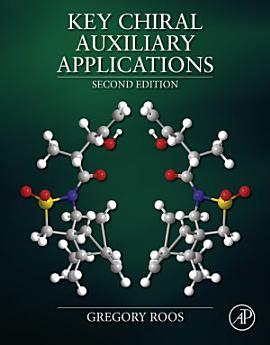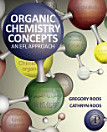Key Chiral Auxiliary Applications: Edition 2
Jan 2014 · Academic Press
Ebook
1270
Pages
family_home
Eligible
info
reportRatings and reviews aren’t verified Learn More
About this ebook
Key Chiral Auxiliary Applications, Second Edition is a detailed compilation of chiral auxiliary applications organized by type of transformation. Continuing from the most important and relevant auxiliaries described in its predecessor, the three-volume set Compendium of Chiral Auxiliary Applications (2001), as well as advances in the field, the book provides a vital and timely resource for chemists in the field. Each reaction class includes a series of tables and graphical abstracts of real reactions from the literature and patents to enable easy review and comparison of results. This anticipated edition is based on a screening of nearly 40,000 auxiliary reaction applications, with details supplied for the more than 13,000 selected representative entries: synthetic route, reagents, yields, diastereomeric/enantiomeric excesses, and characterization data. Updated and streamlined with more than 60% new material, Key Chiral Auxiliary Applications provides valuable guidance and reliable content for selecting the best auxiliary for a specific asymmetric synthetic transformation. - Provides a comprehensive compilation based on nearly 40,000 diverse applications of chiral auxiliaries for selecting the best synthetic route to optically pure compounds - Contains over 60% new material with 13,000+ auxiliary applications categorized by reaction type, with reaction details and chemical and optical yields in one unique resource
About the author
Greg Roos' formal education comprised of a BSc (1971), BSc Honours (1972), and PhD in Organic Synthesis (1976) from the University of Cape Town. A postdoctoral fellowship with Richard Cookson at the University of Southampton was followed by a few years of pharmaceutical industrial experience. His fulltime academic career involved the University of Natal, South Africa (1981-1994), Murdoch University, Australia (1994-1997), and an extended period in the Middle East, including Sultan Qaboos University, Oman (1998-2004) and The Petroleum Institute, Abu Dhabi (2004-2008). He has successfully taught across various cultures and has received awards for his teaching contributions and innovations. Since 2009, as an adjunct Professor at Murdoch University, he shares his time between Australia and Dubai.His research interests have focused on the development of synthetic methodology, with particular interest in asymmetric processes. This provided numerous publications in the areas of the Baylis-Hillman reaction, imidazolidinone chiral auxiliaries, and dirhodium catalyst development and applications. This period also included a number of productive collaborative visits with Tony McKervey (University College Cork & Queen's University, Belfast), C. K. Sha (Shin Hua University, Taiwan), Mike Doyle (Trinity University, San Antonio), and Ron Warrener (CQU Rockhampton, Queensland). In 2001 he received the Merck Gold Medal for research from the South African Chemical Institute.Greg Roos' formal education comprised of a BSc (1971), BSc Honours (1972), and PhD in Organic Synthesis (1976) from the University of Cape Town. A postdoctoral fellowship with Richard Cookson at the University of Southampton was followed by a few years of pharmaceutical industrial experience. His fulltime academic career involved the University of Natal, South Africa (1981-1994), Murdoch University, Australia (1994-1997), and an extended period in the Middle East, including Sultan Qaboos University, Oman (1998-2004) and The Petroleum Institute, Abu Dhabi (2004-2008). He has successfully taught across various cultures and has received awards for his teaching contributions and innovations. Since 2009, as an adjunct Professor at Murdoch University, he shares his time between Australia and Dubai.His research interests have focused on the development of synthetic methodology, with particular interest in asymmetric processes. This provided numerous publications in the areas of the Baylis-Hillman reaction, imidazolidinone chiral auxiliaries, and dirhodium catalyst development and applications. This period also included a number of productive collaborative visits with Tony McKervey (University College Cork & Queen's University, Belfast), C. K. Sha (Shin Hua University, Taiwan), Mike Doyle (Trinity University, San Antonio), and Ron Warrener (CQU Rockhampton, Queensland). In 2001 he received the Merck Gold Medal for research from the South African Chemical Institute.
Rate this ebook
Tell us what you think.
Reading information
Smartphones and tablets
Install the Google Play Books app for Android and iPad/iPhone. It syncs automatically with your account and allows you to read online or offline wherever you are.
Laptops and computers
You can listen to audiobooks purchased on Google Play using your computer's web browser.
eReaders and other devices
To read on e-ink devices like Kobo eReaders, you'll need to download a file and transfer it to your device. Follow the detailed Help Center instructions to transfer the files to supported eReaders.




